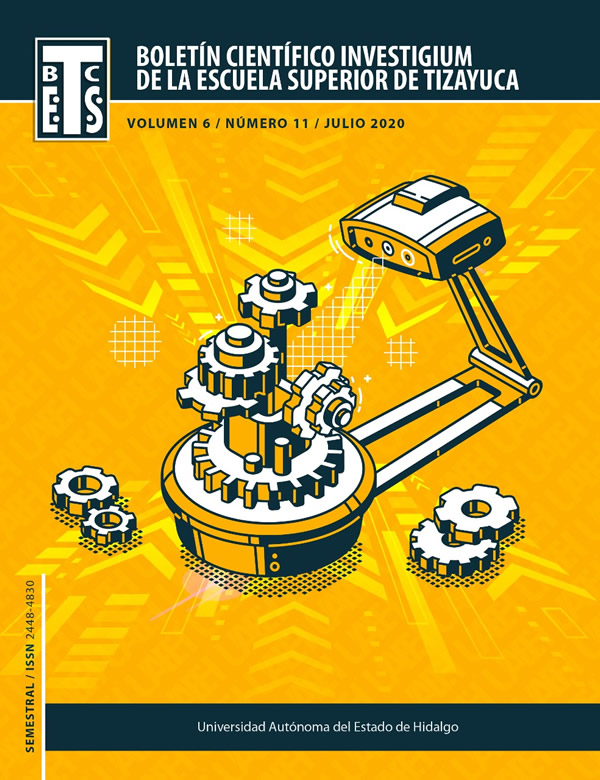Implications of the use of technology in tourism education
Abstract
The present communicates the importance of the use of technology in higher-level teaching, taking into account the generational changes and gaps that are currently separated; the objective is to know the challenges that are present in the teaching of tourism in higher education institutions by publicizing the tools of the Information and Communication Technologies that are currently available to be able to bring this documentary research to experimental research in the future. One of the proposals of this documentary research is to analyze the methodologies used in different educational centers for the teaching of tourism. Educational Technology is the incorporation of Information and Communication Technologies into education, in this case we will focus on the tourism industry; this type of pedagogical strategies allow us to have different stimuli in teachers and students, that is to say that there is stimulus-response and stimulus-behavioral-reforming, which leads to mention that educational technology to some extent of its use, is about conductism, although this current should not be considered as the unique within educational technology. ICT and tourism allow educational tools, use of educational platforms and access to repositories and databases of this industry to be created.
Downloads
References
J.C. Almenara, «Tecnologías de la Información y la Comunicación (TIC): escenarios formativos y teorías del aprendizaje,» Revista Lasallista de Investigación, vol. 12, nº 2, pp. 186-193, 04 septiembre 2015.
J. C. Almenara, «¿Qué debemos aprender de las pasadas investigaciones en Tecnología Educativa?,» Revista Interuniversitaria De Investigación En Tecnología Educativa., nº 0, 2016.
M. T. Zamudio, «Referentes de formación en educación superior. área de conocimiento:Turismo,» Sophia, vol. 11, nº 2, pp. 185-205, 2015.
M. Castillo-Palacio, «Innovación curricular en la formación en turismo: un enfoque teórico-conceptual,» Praxis & Saber, vol. 11, nº 25, pp. 255-278, 2020.
P. J. Sheldon, D. R. Fesenmaier y J. Tribe, «The Tourism Education Futures Initiative (TEFI): Activating Change in Tourism Education,» Journal of Teaching in Travel & Tourism, vol. 11, nº 1, pp. 2-23, 2011.
F. J. D. Páez, «Metodologías de Innovación Educativas en Geografía: el Ejemplo de la Planificación y Gestión Territorial de los Destinos Turísticos,» pp. 177-187.
UNESCO, «Las TIC en la educación,» 2019. [En línea]. Available: a internet y cada día se suman nuevos usuarios; en 7 de cada 10 hogares, ubicados en el sector más pobre de la población, equivalente al 20%, existe un teléfono celular. Esto implica que en un día pueden enviarse 207.000 millones de mensajes de correo ele. [Último acceso: 11 marzo 2020].
OEI, «Inclusión de las Tecnologías de la Información y las Comunicaciones (TIC) en la educación,» 2018.
ANUIES, «Estado actual de la Tecnologías de la Información y las Comunicaciones en las Instituciones de Educación Superior en México,» ANUIES, 2018.
Organización Mundial del Comercio, Problemas mundiales, soluciones mundiales: Hacia una mejor gobernanza mundial, 2010, p. 248.
F. O. Agüera y S. M. Cuadra, «El turismo como motor potencial para el desarrollo económico de zonas fronterizas en vías de desarrollo. Un estudio de caso,» El Periplo Sustentable, vol. 31, 18 mayo 2016.
L. P. Suárez y A. L. T. Salcedo, «Ambientes Educativos de Calidad para la Enseñanza del Turismo,» IV SeminTUR – Seminário de Pesquisa em Turismo do MERCOSUL, 2006.
L. M. Collado Medina, A. H. Márquez y M. M. Zagal, «Innovación curricular en turismo: un campo de estudio y referentes para la formación universitaria,» Revista Electrónica "Actualidades Investigativas en Educación", vol. 13, nº 1, pp. 1-39, 2013.
J. Borges de Carvalho, A. C. Filho y C. Borges, «El aprendizaje empresarial en los emprendimientos sustentables del sector turístico del cerrado brasileño,» Dialnet, vol. 22, nº 3, pp. 568-582, 2013.
J. H. G. Peña, «La regulación del comercio: retos ante el cambio tecnológico,» Revista IUS, vol. 12, nº 41, pp. 43-70, 2018.
R. A. Martínez y R. L. Fernández, «Digital literacy for teachers in Cuban Tourism and Hotel Management Schools. Some experiences on its development,» Universities and Knowledge Society Journal i, vol. 12, nº 3, pp. 3-16, 2015.
A. M. J. Henao, G. J. S. Bolívar, C. A. A. Gómez, S. M. V. Restrepo, C. A. P. Velásquez y L. L. G. Echeverry, «Augmented Reality applications in education to improve teaching - learning processes: a systematic review,» Revista Espacios, vol. 39, nº 49, 2018.
S. Fernández y D. Deluca Alfano, «Herramientas virtuales de comunicación como experiencia innovativa de aprendizaje en la Tecnicatura en Turismo Rural de la FAUBA,» IN-RED 2019. V Congreso de Innovación Educativa y Docencia en Red., pp. 1629-1640, 2019.
J. D. Lizarraga, «La capacitación virtual para el desarrollo de la capacidad de gestión turística – huamanga ayacucho, lima: instituto para la calidad de la educación», 2019.
H. P. L. López, M. G. P. Vera y S. M. P. Vera, «Google Forms in the diagnostic evaluation as support in the teaching activities. Case Students Bachelor of Tourism,» RIDE Revista Iberoamericana para la Investigación y el Desarrollo Educativo, vol. 9, nº 17, 2018.
C. M. García, L. T. Torralba, C. Vaquero y M. G. Hernández, «BIG-Tourism: A Tool for Teaching Geography in the Degree in Tourism,» RED - Revista de Educación a Distancia, nº 44, pp. 1-19, 2014.











